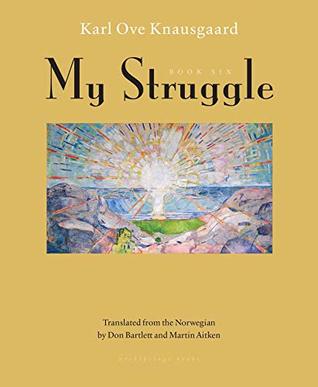More on this book
Community
Kindle Notes & Highlights
Only in fiction is there any expectation of a unique “I,” whose greatest and most important constraint is not to imitate, not to copy anyone else or say what they’ve said, at least not in the same way. The more distinctive a writer is, the greater he or she is perceived to be. Many people seem to think that literature has to do with the creation of knowledge, or the generation of insight, but such things are merely a by-product, something that may accompany literature or not; the most important aspect is its individuality, which lies in the inimitable tone of the particular.
But this individuality is not without limit, it can occur only within the boundaries of the we; when it transgresses those boundaries, stepping outside and expressing something utterly unreasonable, it will be condemned or ignored.
For this reason, literature is inalienable. Because regardless of how consumed we are by each other, regardless of how collectivist our I’s happen to be, they are in fact alone, experiencing everything alone, and that experience, that of being human, of existing in the world, cannot be expressed generally, within the horizon of the we, since in that case no we exists.
in the direct encounter, one person face-to-face with another. The force is in our gaze. This is the truth of our social existence. The social world is local, it belongs to the individual, in any given situation. Indeed, every gaze is unique, it belongs to the individual, and for this, and nothing else, we are responsible. This is the truth of our social existence,
All I’s of literature make use of the same words, the only difference, that which separates one literary I from another, is the way in which those words are ordered, and the fact that it is possible, in that nonuniform distribution, so very marginal when seen from afar, for an I as vital and significant as Emily Dickinson’s to emerge, is remarkable indeed. And it becomes no less remarkable when we consider that practically no one read her poems while she was alive. The overwhelming loneliness and longing she apparently felt is long since dead and buried as we read them now, all that remains is
...more
What does it mean to write? First of all it is to lose oneself, or one’s self. In that it resembles reading, but while the loss of the self in reading is to the alien I, which, by virtue of being so obviously apart from the reader’s own singular I, does not seriously threaten its integrity, the loss of the self in writing is in a different way complete, as when snow vanishes into snow, one might think, or any other monochromism with no privileged point, no foreground or background, no top or bottom, only sameness everywhere. Such is the nature of the written self. But what is this sameness of
...more
The difference between dreaming and writing must surely be that the former occurs without our control, in one of the body’s unconscious modes, and is without purpose, whereas the latter is controlled and goal-oriented. This
There is also something aggressive and hostile in the repetition of this “me.” Fuck you, it says. You can believe what you want. Here, I, and only I, prevail. “Me” completely on its own is anonymous, neutral, and without character. Repeated four times it becomes a literary and social program, since after having read the first four diary entries, one understands that this is a me in opposition to the social world, which it considers to be hypocritical and insincere, unlike its writing, which aspires toward that which is true and sincere by sticking to its own, which is to say the me that opens
...more
The lawyers had to describe whatever the case might be, in other words what had happened, and in court this was of course often the crux of the conflict: what had actually happened? And once this was established, with what motives? And to what effect? It was not unlike a novelist’s work. The difference was that the lawyers not only had to understand the acts in themselves but also how they applied to the law, which furthermore was in writing, formulated on the basis of expectation regarding future events, thus as a kind of prognosis – based on thousands of years’ experience of mankind, which
...more


